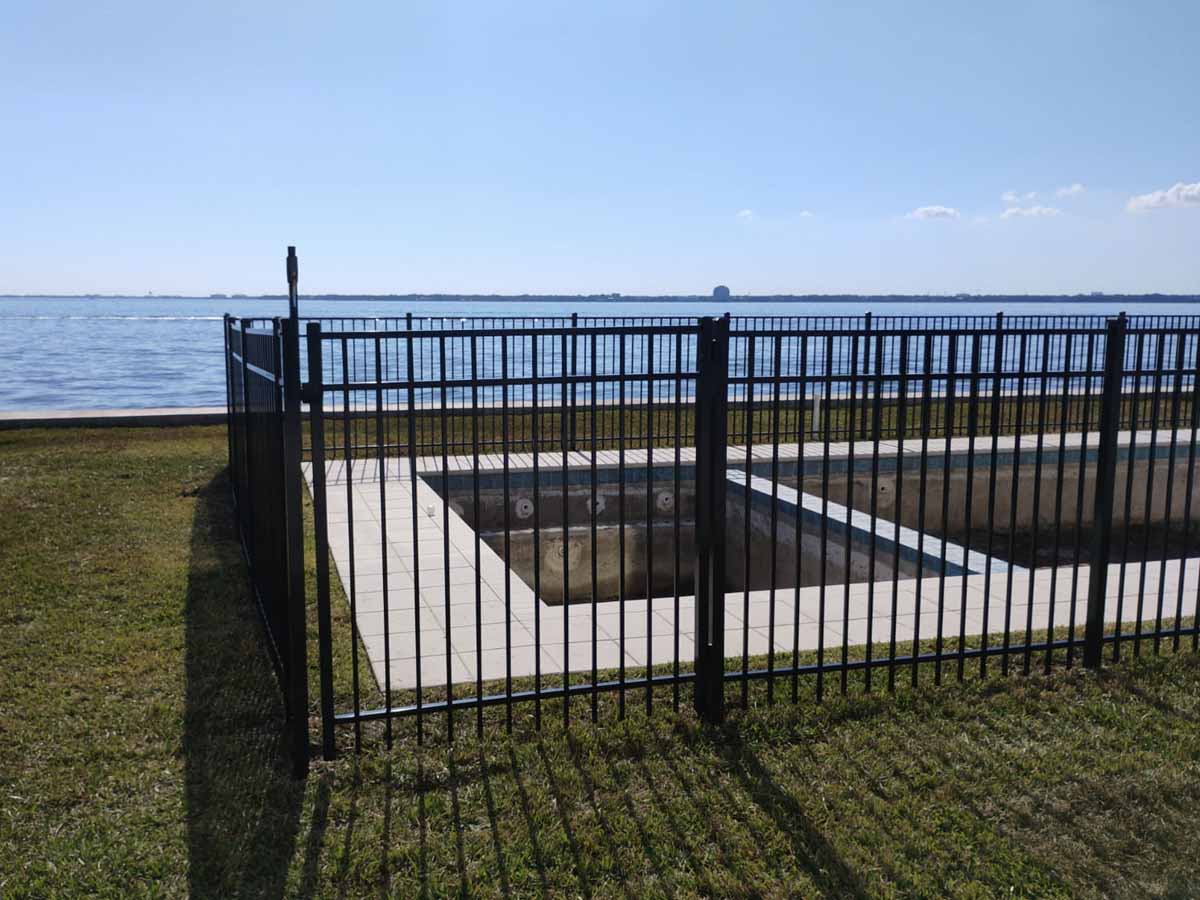Owning a swimming pool in Florida is a great way to enjoy the sun and cool off year-round. But with that enjoyment comes responsibility, especially when it comes to safety. Florida law requires all residential swimming pools to have specific safety features in place, and one of the most important is a compliant pool fence.
Understanding the Florida pool fence law is crucial if you’re a homeowner, property manager, or parent. In this post, we’ll explain everything you need to know about pool fence requirements, why they matter, and how to stay compliant while protecting your loved ones.
Why Pool Fences Are Required in Florida
Drowning is one of the leading causes of death for young children in Florida. According to the CDC, children between the ages of 1 and 4 are at the highest risk. This is why child safety fence regulations in Florida are some of the strictest in the country.
Florida’s Residential Swimming Pool Safety Act was created to prevent tragic accidents by ensuring all new residential pools meet minimum safety standards. The law requires a barrier, such as a fence, around any pool to reduce the risk of unauthorized or unsupervised access, particularly by children.
Key Requirements Under Florida Pool Fence Law
1. Minimum Height
The fence must be at least 4 feet (48 inches) tall. This height is considered sufficient to prevent most young children from climbing over it.
2. No Gaps or Openings
The pool fence must be designed so that there are no gaps or openings large enough for a child to squeeze through. The spacing between vertical slats should be less than 4 inches, and the bottom of the fence must be no more than 2 inches from the ground.
3. Self-Closing and Self-Latching Gates
Any gate providing access to the pool area must be self-closing and self-latching. The latch must be located on the pool side, at least 54 inches from the ground, or otherwise out of reach of small children
4. Gate Opens Outward
To meet legal requirements, the gate must open away from the pool, not toward it. This helps reduce the risk of a child accidentally pushing the gate open
5. Barrier Distance
The fence should be installed in a way that it completely surrounds the pool and creates a physical barrier between the water and the home or yard. If the home forms one side of the barrier, additional safety measures like door alarms or pool covers may be required.
Do All Pools Require a Fence?
Yes, all new residential pools in Florida must have a compliant barrier in place before a final inspection. This includes in-ground, above-ground, and inflatable pools with a depth of 24 inches or more.
However, there are a few exceptions. For example, if you install a screen enclosure that fully surrounds your pool, it may count as your barrier. But even in these cases, the structure must still meet the same standards as a traditional fence.
Types of Pool Fences That Comply With the Law
When it comes to choosing a pool fence, you have several materials to choose from, each with its own pros and cons. As long as the fence meets the Florida pool fence law standards, the material is up to you.
Aluminum Fencing
A popular option for its sleek look and low maintenance, aluminum fences are durable and customizable. Just ensure the picket spacing complies with safety standards.
Vinyl Fencing
Vinyl pool fences are durable, water-resistant, and require very little upkeep. Solid panel vinyl fences also offer added privacy, which is a bonus for many homeowners.
Chain Link Fencing
Chain link can be a cost-effective solution if the mesh is small enough to prevent climbing and the height meets legal requirements. Privacy slats can also be added for extra protection.
Wood Fencing
Wood fences offer a classic look and a solid barrier. They must be maintained regularly to prevent wear and warping, especially in Florida’s humid climate.
Additional Tips for Pool Safety
While a compliant fence is mandatory, there are other ways to make your pool area safer:
- Install pool alarms on doors and windows leading to the pool.
- Use a pool cover when the pool is not in use.
- Keep rescue equipment nearby, such as life rings and reaching poles.
- Always supervise children around water; a fence is not a substitute for adult supervision.
- Penalties for Non-Compliance
Failing to meet the state’s pool safety laws can lead to:
- Fines or penalties from your city or county
- Delayed final inspection approval
- Legal liability if an accident occurs
- In some cases, non-compliant pool fences must be corrected immediately to pass inspection or avoid further penalties.
Let Wimauma Fencing Help You Stay Compliant
At Wimauma Fencing, we understand how important it is to protect your family while still enjoying your outdoor space. We install a wide range of pool-safe fencing options, including aluminum, vinyl, wood, and chain link, all designed to meet Florida’s pool barrier requirements.
Our experienced team will guide you through the best options for your yard, ensuring full compliance with the Florida pool fence law and giving you peace of mind. Whether you need a new installation or an upgrade to meet safety codes, we’re here to help.
Request a free quote through our website or call us today at (813) 578-0000, and let’s build a safer, more beautiful space together.



